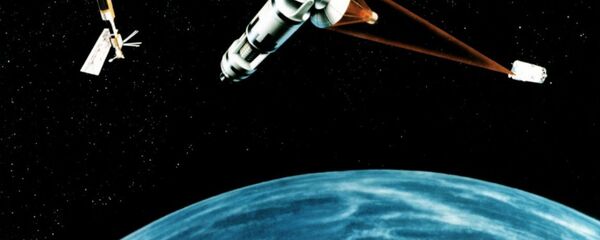Since 2004, two of the USAF’s Defense Meteorological Satellite Program (DMSP) satellites have broken up in orbit. On Monday, the military branch admitted that a third, identified as DMSP Flight 12, has disintegrated, according to Space.com.
The Air Force ordinarily attempts to retire satellites from service before breakup, in an effort to minimize damage. DMSP F-12 was retired in 2008, a process that involves burning off any remaining fuel and releasing compressed gasses, as well as discharging the battery.
While this will make determining the cause of the breakup difficult, since investigators have no recent data to analyze, decommissioning will minimize the debris field. Only one piece of debris has been detected from DMSP F-12.
By comparison, DMSP F-13 was still in service when it broke into roughly 150 pieces of debris in February 2015.
DMSP F-11 broke up in 2004. Even though this satellite had been properly decommissioned, it still produced identified 56 pieces of debris.
A total of nine DMSP satellites were launched by the Air Force between 1982-1997. Of those, only six remain in orbit, and only one is in service. Officials have identified a faulty battery assembly as the reason for the satellites’ short lifespans.
While USAF satellites appear to be disintegrating from explainable causes, the Pentagon’s Defense Advanced Research Projects Agency recently awarded the Air Force with the $150 million Space Surveillance Telescope (SST). The orbiting platform is designed to track objects moving in near-Earth orbit, to prevent sabotage of US satellites.
"Russia and China, by the year 2025, will be able to hold at risk every one of our satellites in any orbit. So if the United States and our allies are to deter adversaries from taking action against our interests, we must do it from a position of strength," Air Force Maj. Gen. Nina Armagno told reporters at the satellite hand-off ceremony earlier this month.
In the event of war in "the space domain," Armagno stressed that SST will allow the US "to see aggressive behavior when it unfolds [and] be prepared to act decisively to defend our own assets."
SST will not, however, defend USAF satellites against their defective internal components.




